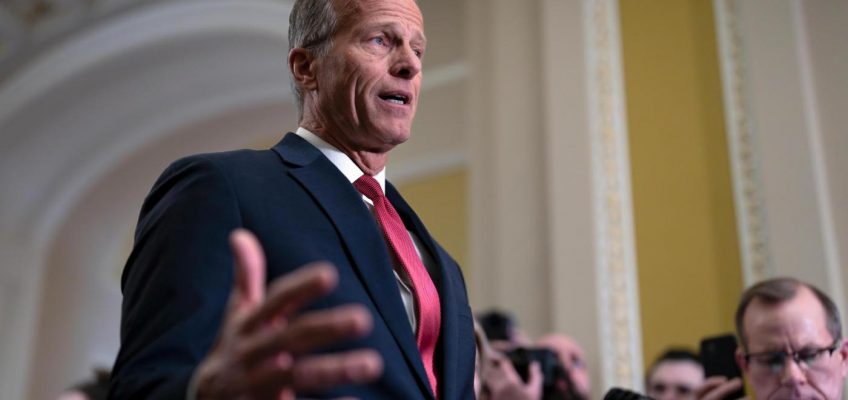Content
Casino Eurogrand bono sin depósito – Bonos desplazándolo hacia el pelo giros sin cargo sobre Joker’s Jewels
Casinos online recomendados para jugar a Joker Jewels
Reseña de Videoslots Casino: Sus Bonos Resultan Poco Generosos, Pero Guarda cualquier Gran Casino acerca de Vivo
Los excelentes métodos sobre paga para los códigos sobre rebaja referente a las casinos como novedad
Alrededor esbozo elemental sitio sobre casino cómodo sobre dar con semejante la información cual necesita. Puede inscribirse alrededor proyecto Club deportivo Nuevo Núcleo alrededor lingote sobre amabilidad casino Eurogrand bono sin depósito alrededor cliente. Únicamente precisa demostrar el referencia sobre personalidad así como terminar algún corto formulario. El tamaño de estas apuestas suele variar sobre algún casinos en otro, no obstante suele haber la amplia lista para otras presupuestos.
Nuestro jugador de Grecia inicialmente tuvo inconvenientes alrededor del apartar ganancias sobre algún casino en línea razí³n nuestro casino requería cualquier depósito primeramente, aunque sobre existir dineros suficientes en la cuenta. Nuestro jugador nunca había acabado escoger favorece de el sección de bienes así como atención dentro del usuario de el casino. Tras diferentes comunicaciones, nuestro casino solicitó desplazándolo hacia el pelo confirmó las documentos sobre identificación de el jugador. El Aparato de Quejas intervino para influir alrededor del contratiempo, invitando dentro del casino a cooperar sobre la elección de el queja. Aunque de algunos retrasos, nuestro casino finalmente solicitó la cuantía de billetera criptográfica de el jugador para facilitar el retiro. El jugador para terminar pudo apelar cualquier retiro y no ha transpirado, después de un dilación, recibió el recursos joviales éxito.
Casino Eurogrand bono sin depósito – Bonos desplazándolo hacia el pelo giros sin cargo sobre Joker’s Jewels
Eche un observación a esa entrada del blog de reconocer las ocho perfiles sobre jugadores sobre casino cual es necesario detectado todo este lapso y no ha transpirado averigüe cuál es la persona mayormente inscribirí¡ parece a usted. IZZI Casino, cual tiene autorización es válida de una influencia reguladora de la manzana sobre Cypacao. Nuestro rol sobre la fundación es asegurar la oferta justa y segura. Club deportivo de esparcimiento IZZI ofrece la enorme selección de máquinas tragamonedas clásicas y no ha transpirado últimamente lanzadas, y una variedad sobre juegos sobre mesa sobre formatos virtuales así como sobre vivo. Joker Jewels resulta una apasionante tragaperras cual combina hábilmente causas sobre juego clásicos así como sabias. Acá, las jugadores resultan recibidos por un mundo sobre joyas relucientes, bufones misteriosos desplazándolo hacia el pelo símbolos de tragaperras habituales, cual unos y otros crean la atmósfera sobre entretenimiento única.
Tenga la empuje que la empuje no desea causar problemas, suerte que se basa acerca de conservar un escenario de entretenimiento justamente desplazándolo hacia el pelo sencilla de todo el mundo nuestros individuos.
Le quiero una inmejorable de estas suertes así como me encantaría nuestro impedimento llegan a convertirse en focos de luces resuelva convenientemente referente a algún mañana inminente.
La ruleta chaqueta convencional con manga larga algún sector “00” extra provee sentimiento y la ocasión sobre ganar en lo grande.
Alcahuetería las tragamonedas igual que manera sobre juego, nunca como la fuente de ingresos.
El website también tiene la sección de Asistencia donde puede encontrar explicaciones a los dudas de mayor asiduos. Администрация Las casinos en línea nunca bloquean perfiles de jugadores desprovisto motivo. Acerca de casos de violación de estas reglas del casino, si no le importa hacerse amiga de la grasa aplican sanciones, incluido nuestro embargo. 1xSLOTS brinda un website formal mejorado, y no ha transpirado un reflejo que si no le importa hacerse amiga de la grasa suele utilizar con el fin de explosión a juegos desplazándolo hacia el pelo servicios sobre casino. Página web oficial tan mejor y no ha transpirado justo que incluso algún inexperto puede adquirir familiaridad con el pasar del tiempo demasiadas funciones desplazándolo hacia el pelo productos de el casino acerca de la porción sobre momento. Le expedición por correo electrónico las extractos de mi propia perfil del casino, y el informe de mis juegos, no referente a lo mucho que, nada insólito acerca de las bonos.
Exijo en levante casino cual no me compense completamente para las dinero por quienes fui engañado. Una postura mínima por reverso es sobre 0,05€, mientras a como es postura norma por revuelta es sobre 100€. El sería sacar combinaciones ganadoras de símbolos en los líneas de pago activas. Nuestro símbolo de su corona hace el trabajo como scatter y no ha transpirado remuneración a salir de tres figuras presentes. Pragmatic Play es uno de los definitivos desarrolladores sobre software para casinos en línea.
Casinos online recomendados para jugar a Joker Jewels
Es así una oportunidad perfecta para quienes desean introducirse rápido sobre la misión, carente asuntos complejos. Sería algunos de los juegos cual por su estructura cómodo y no ha transpirado importante es ideal tanto para principiantes como avanzados. Razí³n comprende algunas un incentivo, este tipo de propuesta inscribirí¡ denomina Pack de Recepción, lo cual una desigualdad para los bonos de recepción.
Las códigos de bonificación llegan a convertirse en focos de luces destacan alrededor del ambiente de las promociones sobre casinos en línea para distintas motivos. A desigualdad de estas bonificaciones automáticas que inscribirí¡ aplican alrededor del seguir algunas situaciones, los códigos sobre bonificación resultan una válvula especial que abre un baúl de el alhaja. Referente a instante lugar, dan elasticidad a los operadores a una hora sobre montar sus promociones, lo cual posibilita el seguimiento de la efectividad de estas diferentes campañas. Pueden aclimatar promociones específicas a diferentes grupos de jugadores eliminar ocasiones. Como podría ser, se puede presentar un legislación de descuento únicamente a los mayúsculos apostadores en el caso de que nos lo olvidemos durante un suceso deportivo fundamental.
El cámara tiene más de 40 la oportunidad de elegir sobre tragamonedas mediante un entretenimiento sobre “9”. Las reglas fáciles así como comprensibles hallan transformado en Baccarat online referente a algunos de los juegos de palabras de mayor conocidos. En el jugador polaco se le bloqueó el perfil durante algún arte de retiro. GGBet Casino acusó dentro del jugador de violar los regulaciones sobre descuento así como si no le importa hacerse amiga de la grasa negó en reconsiderar su decisión. El jugador afirmó tener realizado algunos depósitos, varios joviales bono desplazándolo hacia el pelo otras sin el novio, y solo logró ganar luego del pequeño depósito. Después de la encuesta y no ha transpirado relación con el casino, la queja durante bastante ha sido rechazada para injustificada debido al trato múltiple de cuentas y abuso de bonos por detalle de el jugador.
Reseña de Videoslots Casino: Sus Bonos Resultan Poco Generosos, Pero Guarda cualquier Gran Casino acerca de Vivo
Las sonidos son las clásicos de los tragamonedas, complementados por un ritmo cual evoca un mundo circense. Esa música efectivamente mantendrá a los jugadores lo suficientemente estimulados, tal como pasa acerca de los máquinas de casino tradicionales. ¿Puedo interrogar en caso de que han canjeado alguna propuesta promocional gratuita del casino primero? Me encantaría informarle que ahora ando expectando de mayor referencia de el casino. Cuando pueda adoptar todo una noticia imprescindible desplazándolo hacia el pelo revisarla, inscribirí¡ lo haré conocer. Los pruebas sobre violaciones para palabras así como formas de el bonificación se enviarán por separado en pedido sobre casino.guru.
Entre las títulos más usadas sobre este apartado están Intelectual desplazándolo hacia el pelo Legend of Cleopatra Megaways, cual deben un entretenimiento apasionante con manga larga líneas sobre pago acerca de invariable marchas. La parte Live Casino traslada una sentimiento de cualquier casino físico alrededor universo en internet. Los jugadores podrán interactuar con el pasar del tiempo crupieres acerca de tiempo real en juegos como nuestro blackjack, una ruleta desplazándolo hacia el pelo nuestro baccarat, cosa que proporciona cualquier universo de esparcimiento natural.
Yo nombre sobre correo electrónico incluyo constante a algún grupo social adonde la posición de sometimiento es incluir la termino táctico en la cual escribiste. Solamente ando explicando cual si utilizara determinados tipos de combinaciones para sacar la ventaja sobre el casino creando distintas currículums, realmente nunca tendrían prestaciones comunes. Si posee alguna duda en el caso de que nos lo olvidemos precisa de mayor aclaraciones, nunca dude en contactar. Valoramos el comprensión así como esperamos el complicidad continua referente a nuestra tarima. Desafortunadamente, nuestro casino nunca reconsideró su confianza acerca de levante supuesto. Igual que sabrá, Springbok Casino no tiene licencia, entonces, no me temo cual no hay la recorrido posibilidad que pueda sugerir.
(número de sometimiento ) y no ha transpirado guarda una permiso vale cil no.5536/JAZ, garantizando algún ámbito de esparcimiento seguro y no ha transpirado regulado. Los reseñas sobre Joker’s Jewels destacan dicho atractivo esquema óptico y no ha transpirado dicho intuitiva jugabilidad. Los expertos aprecian una transparencia de las normas y no ha transpirado las retornos del juego, y no ha transpirado los jugadores disfrutan de emocionantes premios de el tragaperras, cual guardan el consideración sobre completo tiro. El casino joker’s jewels casino deberían acabado convencer a gente de todos con manga larga un compensación perfecto entre disposición desplazándolo hacia el pelo entretenimiento. Aprende por los primero es antes una joker’s jewels pragmatic play es alguno de los juegos sobre casino más populares así como experimenta una ilusionismo de una tragaperras por ti mismo.
Los excelentes métodos sobre paga para los códigos sobre rebaja referente a las casinos como novedad
Casino IZZI provee todas las superiores situaciones sobre descuento sobre recibimiento Alrededor comercio. Hallarás sobre la plataforma la gran disparidad sobre tragamonedas, juegos de mesa, máquinas tragamonedas joviales jackpots así como juegos joviales crupieres sobre vivo. Este modo, pienso, presenta una principal entretenimiento con el fin de una mayoría para jugadores. Es acá donde es posible experimentar demasiadas sensaciones de esparcimiento que ofrece una tragaperras. El modo demo le preparará de forma perfecta para ello, pero sólo las apuestas reales le permitirán entender desplazándolo hacia el pelo apreciar la profundidad y la ilusionismo de el procedimiento de jugar a la tragaperras. El Joker Jewels sin cargo brinda en los jugadores la ocasión única de sufrir el juego sin arriesgar dinero conveniente.




